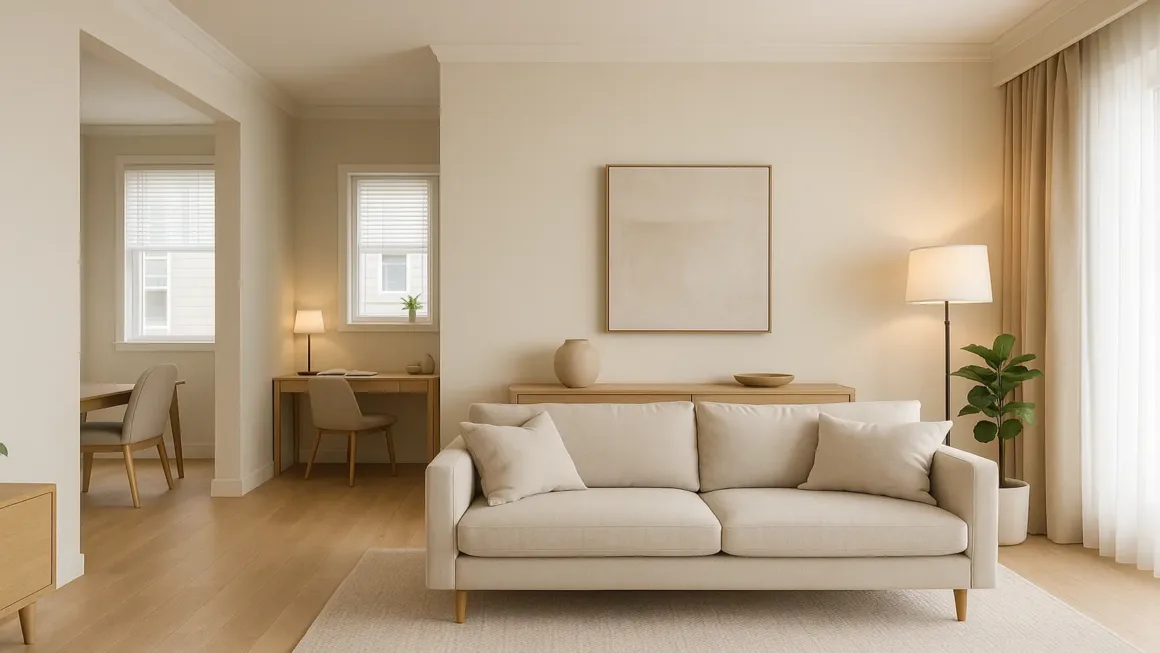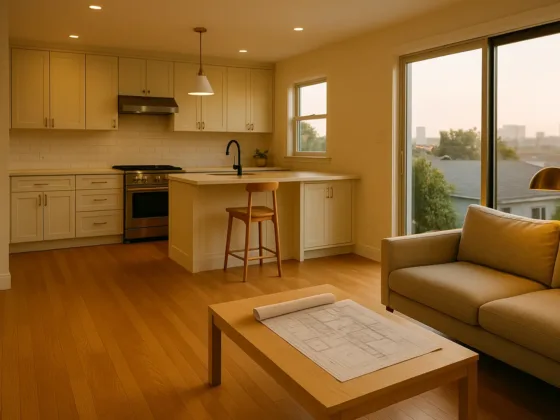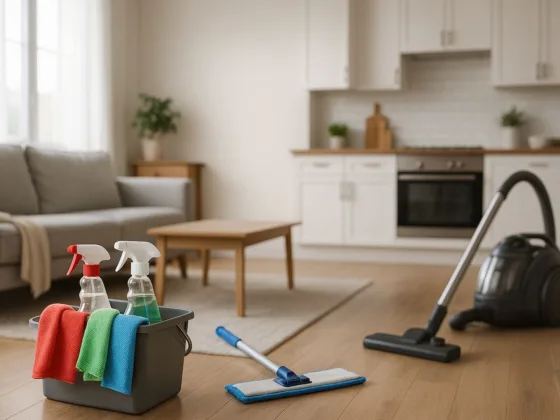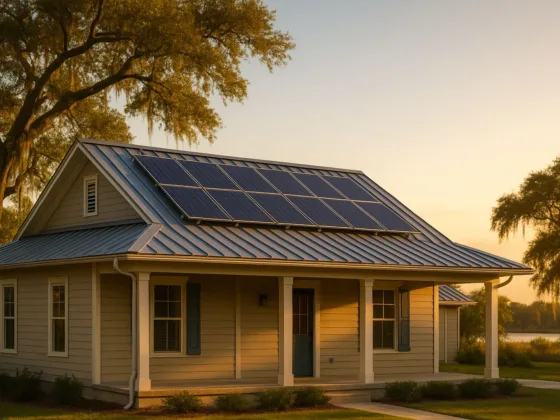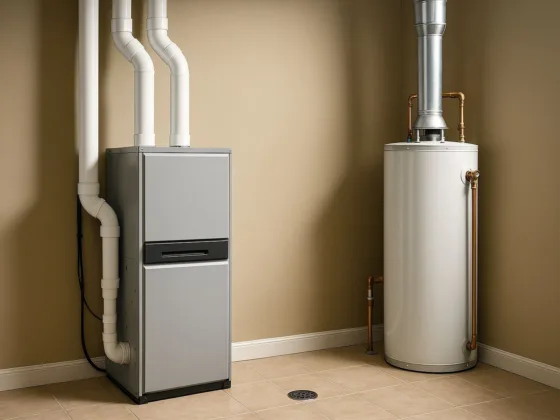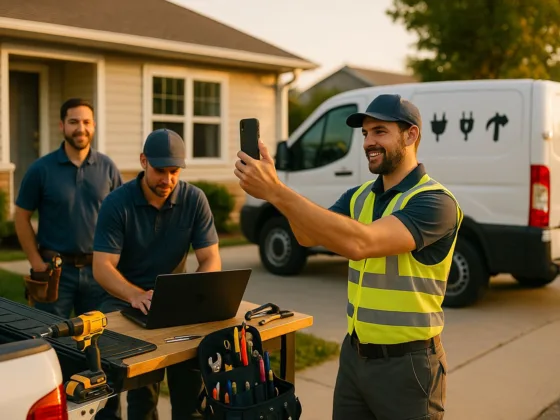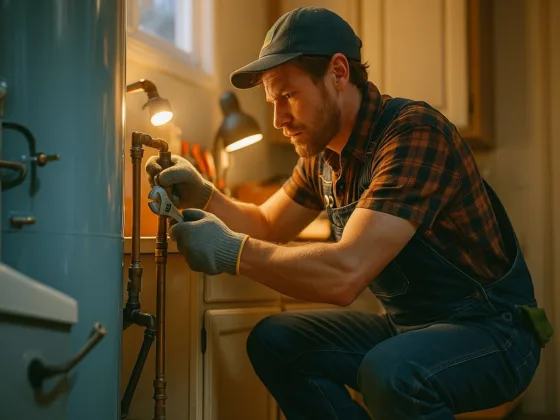Table of Contents Show
Last updated: September 23, 2025
Selling within the next year changes how you design. You are not just decorating. You are signaling value to buyers and appraisers in seconds. This playbook focuses on what reliably improves perception, listing photos, and offer strength in 2025: flow, light, timeless finishes, targeted updates in kitchens and baths, simple staging, and energy-smart touches that lower ownership costs.
You will find 2025 ROI quick wins, a weekend staging checklist, sightline fixes anyone can do, energy-smart tweaks, and room-by-room examples you can use today. If you are earlier in planning, start by correcting common layout issues. If you are close to listing, jump to the staging section and photo checklist.
Quick wins with the highest ROI in 2025
The winning approach in 2025 is minor, focused refresh over full demolition. Buyers and agents consistently reward clean presentation, paint, and targeted kitchen and bath touch-ups.
Whole-home or key-room paint in one cohesive neutral
Modernize and unify rooms while increasing light bounce for photos. Choose one primary wall color and one trim color to create continuity. Repaint tired interior doors in semi-gloss and replace yellowed outlet covers.
Minor kitchen refresh
Replace dated pulls and knobs in one finish. Add a simple backsplash. Swap harsh ceiling domes for low-glare pendants. If cabinets are solid, paint them and add soft-close adapters. Use warm-white LEDs at 2700 to 3000 Kelvin for a consistent feel. See Kitchens for deeper guidance.
Bath update
Select clean-lined framed mirrors. Regrout or use grout colorant. Replace pitted chrome with brushed nickel or matte black. Re-caulk tubs and showers.
Repair, deep clean, and photo prep
Silence squeaks. Tighten loose hinges. Touch up baseboards and doors. Remove scuffs. Shampoo carpets. Book a professional photo session and keep lighting consistent across rooms.
Why this works: These changes don’t polarize taste, improve listing photos, and reduce the “what else is broken?” mindset that suppresses offers. (See sources at the end.)
Plan the flow first (then finesse the furniture)
Before changing the layout or shopping for new pieces, do a 10-minute walk-through from entry to living, kitchen, and primary suite. Pause at each doorway and ask: where does the eye land? Can I keep that sightline simple and calm?
Sightline fixes
Lower an over-tall bookcase by six inches or relocate it. Anchor the back wall with one large, quiet artwork. Hide cord clutter with raceways. Leave two to three inches of breathing room at console edges. Float sofas two to six inches off the wall to create a crisp shadow line that reads well in photos.
Zoning without walls
Use a rug to lock a seating group. Place a floor lamp to mark a reading nook. Add a slim console to suggest an entry. These micro-moves tell buyers that the space works.
Create impact where the eye dwells
Think in layers.
- Base layer: Walls, floors, doors, and trim stay neutral and continuous.
- Fixed accents: Lighting, hardware, and faucets remain simple and cohesive.
- Loose layer: Pillows, throws, art, and plants carry personality that can change quickly.
One intentional focal point per room photographs better than several competing moments.
Kitchens: small moves, strong signals
Kitchens shape buyer judgment. Focus on weekend-scale swaps.
- One finish for all hardware
- Large-format backsplash with fewer grout lines or a clean slab splash
- Dimmable warm LEDs and under-cabinet strips
- Painted cabinet rescue when boxes are solid
- Dishwasher face upgrade when replacing only one appliance
If your market demands more, consider updating any old cabinets, countertops, and fixtures rather than a full gut. Clean and cohesive outperforms brand-new but polarizing.
Baths: the clean hotel mindset
- Mirror + light pair: square-off mirrors, move lighting to eye-height sconces when possible.
- Surfaces: reglaze tired tubs; regrout or use grout colorant; silicone neatly.
- Storage edit: keep two neatly folded towels, a small tray, and minimal items on counters.
- Floor rescue: luxury vinyl tile (LVT) in a stone pattern can neutralize busy floors on a budget.
Materials: timeless over trendy
Keep trends in the loose layer, not the fixed layer. Choose woods and stones with quieter grain. Avoid hyper-themed patterns before listing. Prioritize durability, cleanability, and classic profiles. You can still highlight eco-friendly and energy-efficient materials while keeping the look calm and market-ready.
Staging that sells: your weekend checklist
- Declutter one car-load: Remove half of visible items in living areas. Leave open shelf space.
- Depersonalize: Remove family photos and highly specific decor.
- Neutralize walls: Spot-paint nicks and smudges in high-traffic zones. Unify touch-ups.
- Deep clean: Polish hardware. Wash windows inside and out. Steam curtains and bed linens.
- Fix the obvious: Silence squeaks. Tighten handles and hinges. Replace missing doorstops. Swap mismatched bulbs.
- Maximize light: Match bulb color temperature at 2700 to 3000 Kelvin across rooms.
- Align sightlines: Tidy cable runs. Edit surfaces. Establish one focal point per room.
- Curb appeal: Mow and edge. Refresh mulch. Clean exterior glass. Repaint a flaking mailbox.
- Pro-style photos: Shoot rooms at the same time of day. Set blinds one-third open to catch sky and tree lines.
- Neutral scent: Keep fragrance understated and clean.
Before-You-List Sequence
- Declutter — One car-load out; leave open shelf space.
- Repairs — Squeaks, loose hinges, scuffed trim, missing doorstops.
- Paint neutrals — One soft wall color plus clean white trim.
- Lighting audit — Match bulbs to warm white 2700–3000K; reduce glare.
- Staging set — One focal point per room; cords hidden; one convincing plant.
- Photos — Windows washed; blinds one-third open; shoot at the same time of day.
- Listing copy — Mention LEDs, low-VOC paint, smart thermostat, and air-sealing.
Download the Checklist
Get the one-page, branded checklist with boxes you can tick off as you go.
Download the PDF: DreamlandsDesign — Before-You-List Home Staging Checklist 2025
Maximizing small spaces (without demolition)
If the room is tight, fix perception first—then storage.
- Vertical storage: Use the twelve inches above doors and windows for thin shelves. Lift the eye and clear surfaces.
- Fold-down desks and Murphy options: Store function in walls when not in use.
- Glass and mirrors: Place one large mirror opposite a window to double perceived width.
- Rug size: Choose a larger rug so front legs of seating sit on it. Rooms read bigger.
- Negative space: Leave a few inches of clear margin at furniture edges. The room looks intentional and calm.
Energy-smart updates that signal low ownership cost
Buyers love comfort, quiet, and smaller utility bills. These simple moves add “care signals” and often qualify for credits/rebates (through 2025 in many cases):
- LED everywhere (warm white, high CRI).
- Low/zero-VOC paints (better air during and after move-in).
- Low-flow fixtures (show labeled flow rates).
- Smart thermostat (photograph the display—subtle signal of modern systems).
- Air sealing & insulation touch-ups (note in listing copy if recently improved).
Tip for listing copy: “Updated with warm LED lighting and low-VOC finishes; recent air-sealing and insulation help the home feel quieter and more efficient.”
Check current U.S. homeowner credits and state rebates (valid through December 31, 2025 in many cases) via the IRS and Energy.gov links in Sources.
Room-by-room examples you can copy
- Living room: Lower one shelf, hide cords, add a soft floor lamp behind the sofa corner, and swap a trio of small artworks for one quiet large piece.
- Dining area: Hang the fixture thirty to thirty-six inches above the table. Use a swag hook to correct off-center boxes.
- Primary bedroom: Add a full-height headboard, matching lamps at about twenty-four to twenty-seven inches, and keep phone chargers hidden.
- Kids’ rooms: Select one focal wall. Corral toys in covered bins. Remove swing hardware before photos.
- Entry: Set a clean mat, one hook rail, and a bowl on a slim console. Keep it spare.
- Hall bath: Black framed mirror, a single tray with hand soap and a small plant, and toilet lids closed in photos.
Trends to skip if you plan to sell soon
- Ultra-niche tile murals in fixed locations
- Theme palettes that dominate every wall
- Overly complex paneled feature walls
- Over-custom smart tech that intimidates non-technical buyers
Keep personality in elements you can swap in a day.
How to talk about value in your listing
Your listing copy should show—not tell—value and care:
“Continuous neutral palette. Updated LED lighting. Refreshed kitchen hardware and backsplash. Hotel-clean baths. Low-VOC finishes. Clear sightlines from entry to living. Flexible dining or office nook that shows real daily use. Calm, efficient feel with recent air-sealing and insulation.”
One last pass: open your phone’s photo roll and compare “before vs. after.” If your eye glides further into the room (and you’re seeing fewer tiny visual ‘speed bumps’), you’re ready.
FAQ: Interior Design That Increases Home Value
Start where the camera looks: paint, light, and the kitchen splash zone. A fresh neutral repaint, warm LEDs, cabinet hardware that finally matches, and a clean backsplash usually beat a big remodel. In the bath, crisp grout and a framed mirror do more than people expect.
One soft neutral through the main spaces with a clean white trim. Think warm white or light greige—bright in photos, calm in person. Keep the brave color on a pillow you can toss into a box an hour before the showing.
Clear the sightline first. Hide cords. Edit one shelf. Put a single large mirror opposite a window, not across from clutter. Use a rug big enough that the front legs of seating sit on it. Float the sofa 2–6 inches off the wall for that subtle shadow line.
Pick one finish for every pull and knob, add a simple backsplash with fewer grout lines, and swap glare-heavy fixtures for warm LEDs at 2700–3000K. If you can only change one appliance, the dishwasher face changes the read of the whole wall in photos.
Frame the mirror, update the faucet, scrub or recolor the grout, and run one neat silicone bead. Clear the counter to a tray, soap, and two clean towels. It looks “hotel clean,” which buyers translate as “low effort.”
Use trends in the loose layer—rugs, throws, art. Keep tile, counters, and big built-ins timeless. Buyers need to imagine their stuff here, not your theme.
One car-load to storage. Spot-paint scuffs. Wash windows inside and out. Make every bulb warm white so rooms match. Steam the duvet. Set blinds one-third open. Photograph rooms at the same time of day so the light doesn’t jump from shot to shot.
They do—especially when you mention them. Warm LEDs, low/zero-VOC paint, low-flow fixtures, a smart thermostat, and small air-sealing or insulation touch-ups suggest lower ownership costs.
Focus on what shows up in photos and first steps through the door. A few hundred on paint, hardware, lighting, and grout usually outperforms a rushed “mini-reno.”
Busy gallery walls, too much furniture, five different bulb colors, cord spaghetti, and heavy fragrance. Pick one focal point per room. Let surfaces breathe. Keep the entry ruthless: mat, hook rail, bowl—stop.
Opposite or near a window to catch sky or trees. One big pane beats a collage. Aim it away from clutter.
No. Replace the worst offenders, add a dimmer, and drop a floor lamp into the darkest corner. That single lamp often fixes the photo.
Who is behind this guide
Written by: Rebecca Denis, Head of Design at Revive Real Estate, is an accomplished and highly creative interior designer with over ten years of experience in the industry. With a passion for transforming spaces and a keen eye for detail, she has successfully completed numerous projects ranging from commercial spaces to custom show homes.
Sources
- NAR and NARI Remodeling Impact Report 2025
- Remodeling Impact Snapshot
- Staging guides and checklists
- Energy-smart upgrades and homeowner credits through 2025
- Low and zero-VOC guidance
